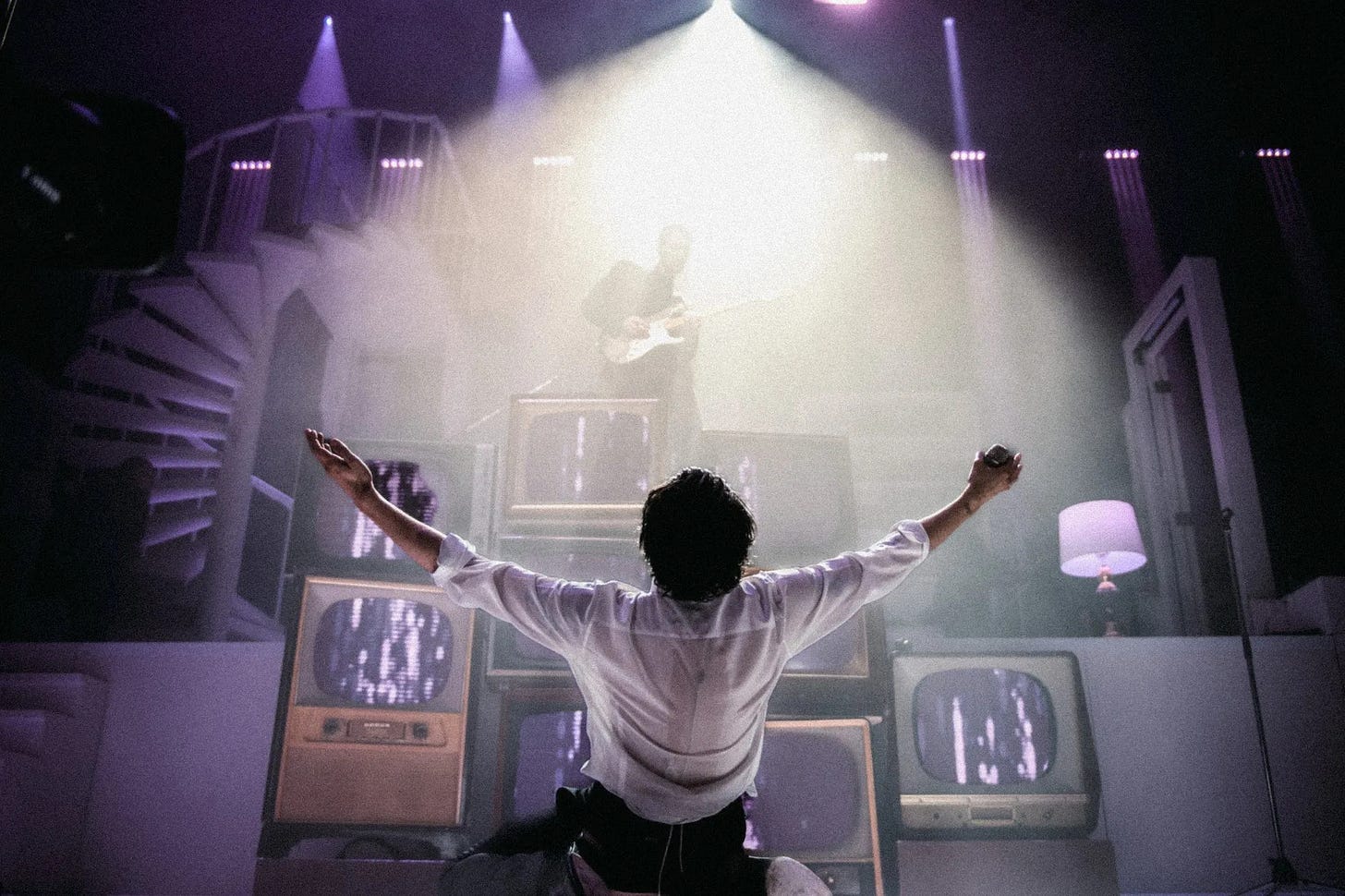Welcome to Doomscroll. I’m excited to announce episode #08 with guest Matty Healy. In the past few years, this project has grown from a niche discussion between artists and creatives, into a public forum for new ideas and theories of online culture.
My independence is what allows me to have these conversations. Your support helps me to keep doing this work and to make new episodes:
This week, I sat down with musician Matty Healy of The 1975. Matty and I have had an on-going dialogue about internet culture, online politics and the strange aesthetics of our time. We discuss:
The commodification of counter-culture. How “punk” and “alternative” went from rebellious pseudo-political identities to safe consumer genres.
Hauntology and Mark Fisher’s “slow cancellation of the future”. Matty illustrates these concepts by comparing the distinct aesthetics of pop music across various decades.
Social media and the erosion of public space, goods and art. What will a fully privatized 21st century culture look like?
Building new institutions (if not us, then who?)
In this episode, Matty and I explore the inspirations that inform our work. Over the past decade+ of making and showing art, many of my most meaningful interactions have been conversations with other creatives. This exchange of ideas is one the great joys of creative life. A good story can change the way you see the world (this is especially true for politics). Matty and I dive deep into our presently unfolding cultural crisis and try to plot a way forward.
Over the course of this long form conversation, we touch on a number of important references; cultural theorist Mark Fisher’s Capitalist Realism (2009) and Ghosts of My Life (2014), historian Fred Turner’s From Counter-culture to Cyber-culture (2006), and documentarian Adam Curtis’ All Watched Over by Machines of Loving Grace (2011). But alongside this academic material, we are also deeply immersed in the chaotic shitposting culture of the internet. On Doomscroll, we try to take silly things seriously. The cultural and political impacts of social media are already shaping real world outcomes. I hope these conversations can guide us toward a better understanding of these emergent phenomena and ultimately direct them towards more positive ends.
If you want my full reading list & recommendations you can get the syllabus: fall 2020, spring 2021, fall 2021, spring 2022, summer 2022, year 2023, year 2024. (It’s okay to do these out of order, no one is checking.)
Watch the full episode here. If you like this material, please share with your friends. Reaching new viewers helps us to keep this project going.
Doomscroll #08: Matty Healy: Art and Pop in the 21st Century





Is there gonna be an audio version of this that I listen to while having my phone screen off?
There was a fair bit of discussion in this episode about billionaires not supporting cultural institutions. It seems like the shift isn’t that billionaires have stopped giving, but rather that their priorities have changed. Older billionaires, especially pre-globalization, focused more on domestic interests like cultural institutions, universities, and museums, reflecting their localized business ties. Today, many billionaires operate in a globalized context and direct their philanthropy toward global issues, particularly health and development in poorer countries (e.g., Bill Gates, Mark Zuckerberg).